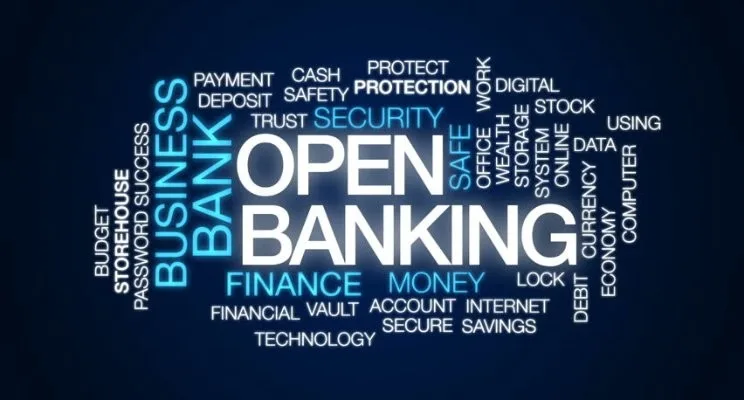How Will Open Banking Shape the Future of Financial Services?
Open banking will have a major role in the future of financial services. This system means that many different financial institutions come together in a common area and provide services to their customers. Customers can switch between different service providers through a single platform. In this way, the variety of services that users receive is maximized.
It can be considered an important development that open banking increases competition in the sector and this competition affects the sector positively. Innovations and positive competition serve the development of the financial sector.
Additionally, thanks to customer data sharing in open banking, other financial institutions can be more sensitive to customers’ wants and needs. In this case, it means providing services that are more personalized and customer-oriented.
On the other hand, sharing customer data means finding new solutions in security and safety of data. Each security measure taken to prevent information leakage during these financial operations will closely affect the future of financial services.
Another very important issue is digitalization. Thanks to open banking, the speed of digitalization of financial services increases and different platforms are integrated with each other. These integrations are created through APIs (Application Programming Interface).
What Are the Benefits of Open Banking for Consumers?

Open banking is very useful for its users. To explain; it provides its users with a huge variety of products and services because it brings together different financial institutions. This diversity comes with better interest rates, more favorable loan terms, tools for budget management, etc.
Again, thanks to the data sharing that comes from bringing together many financial institutions, more personalized services are offered to users. Meanwhile, today this has become an advantage sought by customers. Users can also share their financial data by allowing data sharing.
But the control in this sharing is almost entirely with the users and they can manage this sharing for their security if needed. Account management becomes very easy in open banking, which allows switching between institutions on a single platform.
Users can control multiple accounts by integrating their accounts with this platform. Thanks to APIs, users can complete their financial transactions faster and easier. This also results in a very positive outcome for users as other banks try to compete. It can be said that as long as they use open banking, transaction costs will be positively affected for customers without them even realizing it.
How Do APIs Drive Open Banking Initiatives?
APIs are considered the basic building blocks for open banking. It is possible to talk about a generally positive orientation here. To explain; APIs enable the secure sharing of customer data by bringing together different platforms, and as a result of this combination, they play an active role in ensuring the safety and security of the data and development of innovative products and services.
Having customers who can make transactions through a third-party platform in open banking can be given as an example of this situation. APIs can enable you to receive faster service in banking transactions, and they can create more user-friendly interfaces by combining the systems of different financial institutions. This helps users make financial transactions more easily. In other words, APIs are extremely functional in terms of flexibility, efficiency, and innovation in the financial sector.
What Privacy Concerns Arise with Open Banking?

Privacy concerns in open banking are natural. The sharing of customer data with different financial institutions is a factor that causes concerns in itself. Although the confidentiality of customer data is a very important issue in open banking and these banks have taken strong measures on the issue, it does not seem possible to prevent concerns.
The risk of data being used by unauthorized persons is a very worrying situation for customers. Additionally, this data-sharing issue may be a target for cyber-attacks. Theft and unauthorized misuse of customer data are one of the most important privacy concerns in open banking.
In some cases, customers may not have sufficient information and control about who their data is shared with and for what purpose. In addition to this, the existence of a possible data monitoring and/or profiling risk is one of the main privacy-related concerns in open banking.
Many of these concerns might be exaggerated because the issue of data sharing in open banking has very strong security measures (strong encryption, authentication processes, security protocols, etc.); however, it is important to remember to take all the precautions beforehand.
Are Banks Embracing Open Banking as a Business Model?
More and more banks are trying to adopt this open banking concept and integrate it into their business models. Because this banking system generally increases the competitive power of banks. Customers are now generally demanding these services because they have adopted the fact that open banking is customer-oriented and customizable.
In addition, the wide range of services available in open banking (investment services and budget management tools, etc.) is a sufficient factor alone for banks to adopt this new business model. We know that some banks have adopted the open banking model through investment and are trying to adapt to this business model step by step through collaborations and new partnerships.
It is also possible to mention that regulators may adopt this model to comply with their regulations supporting open banking. In short, banks’ adoption of open banking means more customer satisfaction, more innovation, and more competition between banks in the sector. This is the best scenario for users.
What Are the Global Trends in Open Banking Regulation?
Since open banking regulations are an issue that attracts attention from all financial authorities, they have some similar trends. To explain; raising the security standards of customer data has generally become a key focus. Different studies are carried out every day around the world, especially regarding security in open banking.
In addition, standardization, security and performance of APIs are other important issues. All regulators around the world are working together for an international standard for open banking. These studies enable open banking transactions to proceed in a standardized manner around the world.
We can also talk about the existence of global trends in competition and innovation. Since customer satisfaction is at the center of open banking, it is possible to see similar approaches to competition and innovation all over the world.
See you in the next post,
Anil UZUN
